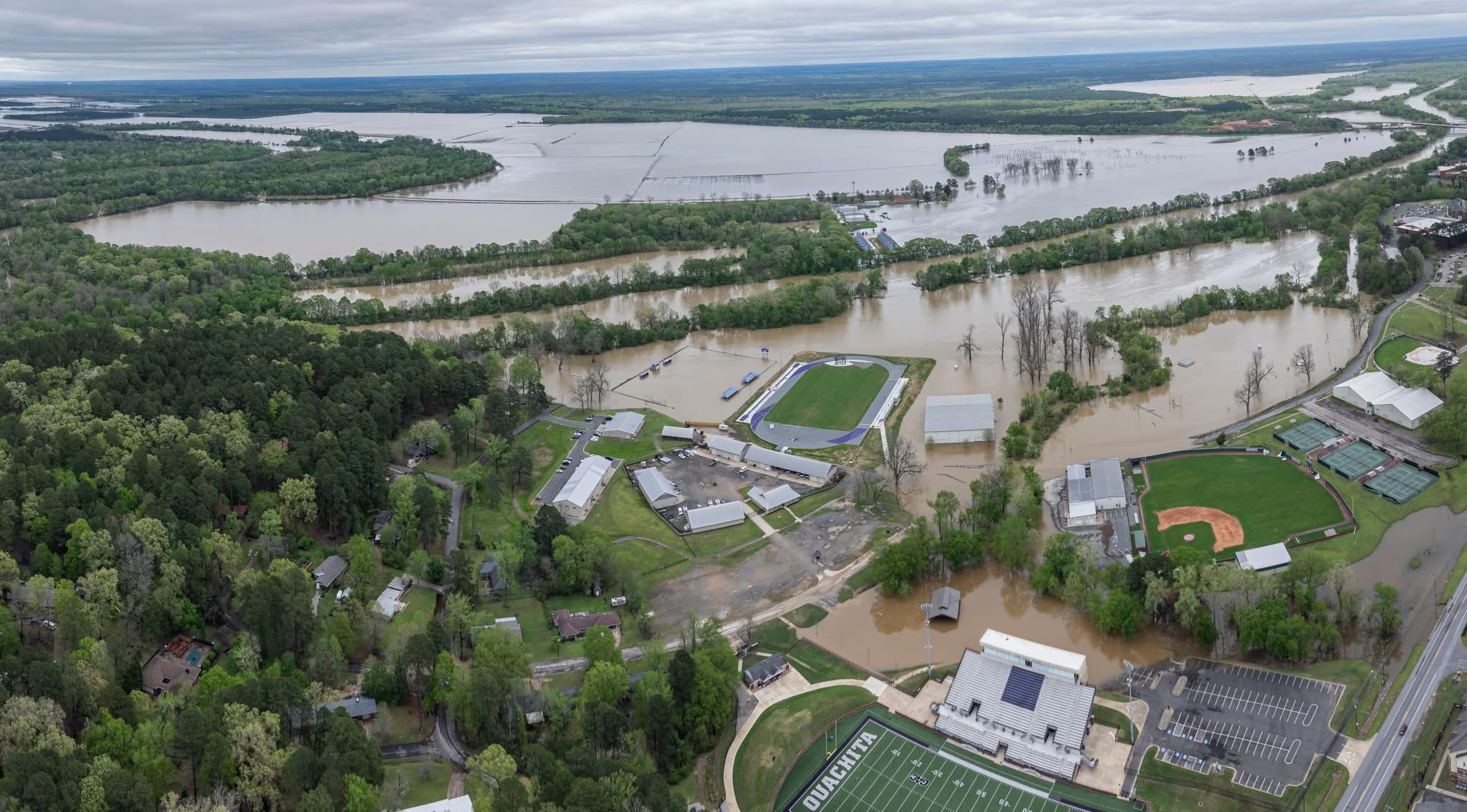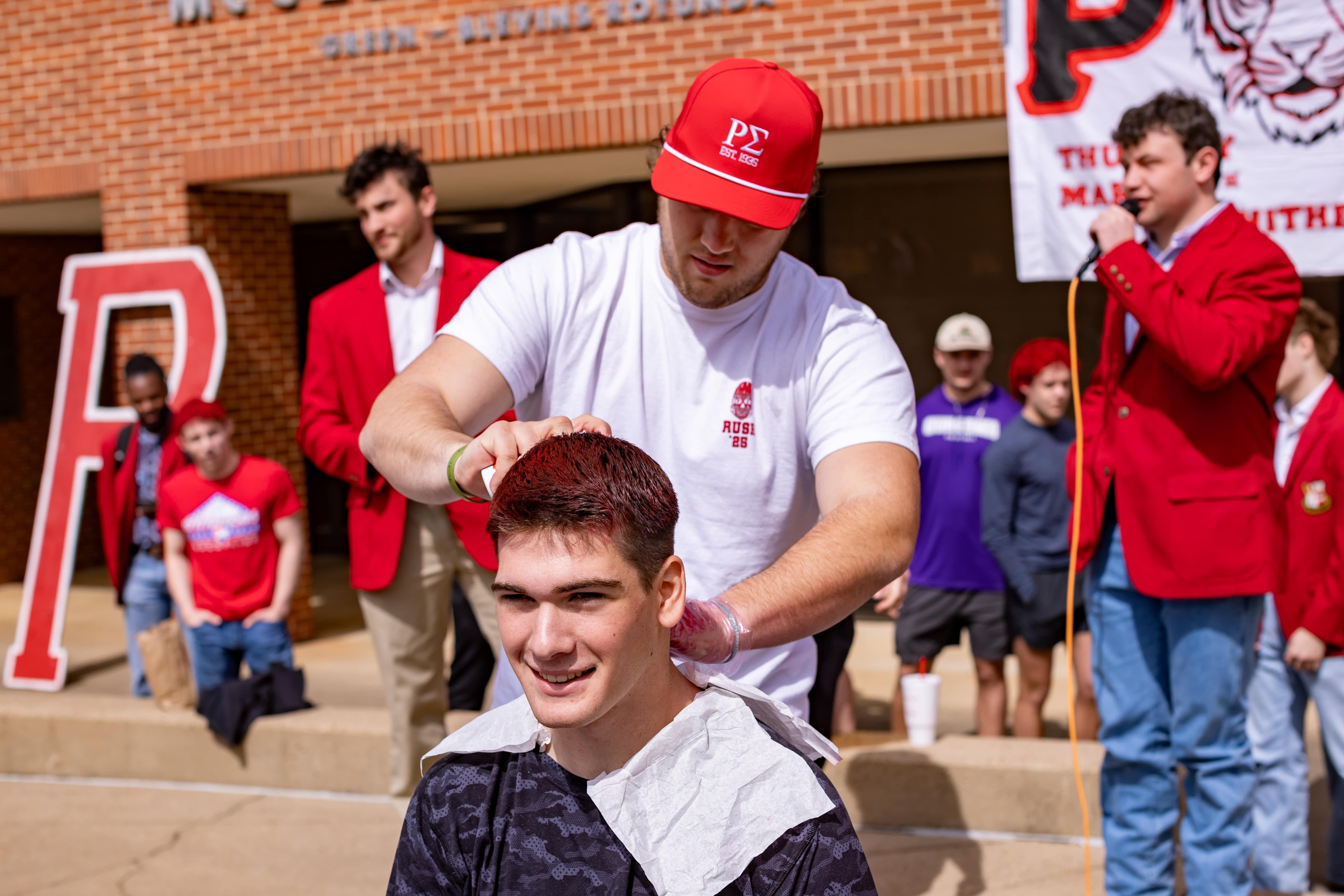Most students at Ouachita have taken a course or two online during the summer, or even during the fall or spring semesters, but starting this semester, president Rex Horne appointed a committee of five faculty members to research the possibility of offering entire degrees online.
“Online is the elephant in the educational room,” said Bryan McKinney, associate professor of business law and dean of the school of business, who is heading the research committee.
“Whether we like it or not, it’s here and it’s not going anywhere,” McKinney said. “Online enrollment has grown far more than traditional undergraduate education.”
In fact, online programs experienced a 9.5 percent enrollment increase nationwide, while Arkansas simultaneously experienced a net decline in the number of students enrolled in public and private colleges. Because of this impressive educational trend, Ouachita is considering a daring technological leap in learning.
“We’re looking at associate degrees,” McKinney said. “We’re looking at bachelors degrees. We’re looking at masters degrees.”
The idea to incorporate such degree programs into Ouachita’s curriculum has been discussed among faculty members for years, but plans did not begin to form until two consultants from Kentucky entered the picture at a conference this summer.
One consultant is a former college president and the other is the former dean of an online program at a small university very similar Ouachita. Now, these consultants advise universities who are thinking about adding online programs to their course offerings.
For starters, these consultants advised that Ouachita’s online programs remain completely online with no involvement from any currently enrolled, residential students for at least the first year.
“You need to see it as two totally separate things,” McKinney said. “It will just be a separate entity.”
“Because it is so different, we want to take our time to study this and see if it’s right for Ouachita,” said Dr. Stan Poole, vice president for academic affairs, professor of English and dean of interdisciplinary studies. “It’s very preliminary.”
“It has to be fully online because these students are working,” McKinney said. “They’re taking their kids to soccer practice.”
Work and family obligations often keep potential students from attending residential colleges, like Ouachita, while online programs offer flexibility, especially when it comes to time and finances.
Not only will new online enrollees feel some financial relief thanks to cheaper tuition, the university will save money on faculty, staff, maintenance and all the costs associated with running a physical institution, like electric and water bills.
This new, more diverse student demographic for Ouachita does not mean that its residential students will be neglected ― just the opposite. Much of the profit from online programs may go towards the home campus, towards residential students who are already enrolled.
“We strongly believe in the residential model. We believe it works,” Poole said. “Our first priority is our residential campus and the quality of the education here.”
Poole said students, faculty and staff should see online enrollment only as a supplement to an already high-quality education at Ouachita.
Despite the seeming enormity of translating an entire university’s curriculum to an online format, degrees from Ouachita may be available through the World Wide Web sooner than you think.
“I think it could happen in the fall,” McKinney said. “It’s not like we have to have everything ready to go. We just have to have a commitment to it.”
In other words, faculty and staff at Ouachita must be committed to updating and adding courses online; it’s not necessary to have a fully functioning online university complete from day one.
For example, CORE classes are among the first courses that new students take and most have already been transferred online, so courses for the first few semesters may already be available.
“We could have a little as 17 new courses in the first year,” McKinney said. To put that in perspective, professors at Ouachita typically teach eight courses a year and, unlike a physical campus, it would only take about 50 students to make an online program successful. If necessary, however, Ouachita could hire adjuncts or new professors to handle an influx of students.
The future of online degrees at Ouachita lies largely in the hands of its existing faculty because they would be the ones teaching its new, virtual students. However, teaching online may be intimidating, uncomfortable or just undesirable for professors who were initially attracted to the intimate class sizes and face-to-face time with students that Ouachita boast as a small, private college.
The monthly faculty forum last week was when the committee was to present its research to faculty and staff in hopes of a welcoming reception. For now, online degrees are still under debate.
For more information about online degrees at Ouachita, contact Bryan McKinney through email at mckinneyb@obu.edu or through phone by calling him at 870.245.5513.












